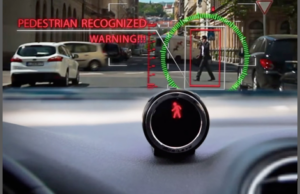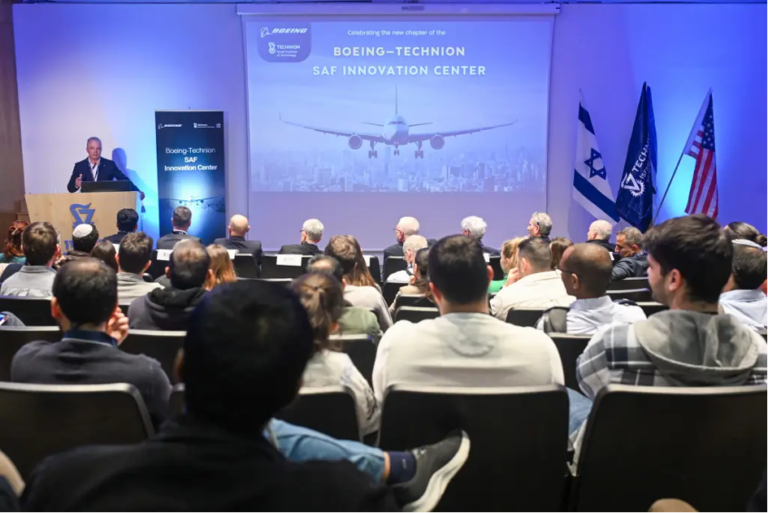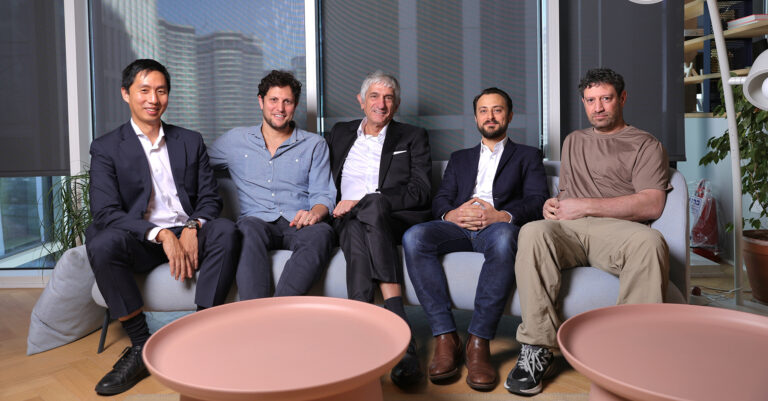Mobileye rachetée par Intel pour 15 milliards de $, l’ascension éclair de l’ex-start-up de Jérusalem

[:fr]
Les Echos. Né en 1999, le spécialiste israélien des logiciels d’aide à la conduite a séduit plus de vingt constructeurs. Il vient d’être racheté par Intel pour 15 milliards de dollars. Nichée à l’entrée de Jérusalem, dans l’austère zone industrielle de Har Hotzvim, Mobileye a vécu une journée peu ordinaire lundi. L’officialisation de son rachat par l’américain Intel a créé dans le pays un électrochoc au moins aussi fort que l’euphorie suscitée par l’acquisition du GPS israélien Waze par Google en 2013, pour un montant à l’époque quinze fois inférieur.
Mobileye, qui s’est imposé en un temps record comme un leader mondial des systèmes avancés d’aide à la conduite, s’est pourtant habitué à se retrouver sous les feux des projecteurs ces dernières années. Comme de nombreuses personnalités, Barack Obama a visité l’ex-start-up, désormais cotée au Nasdaq, pour découvrir son système embarqué de caméra intelligente surnommé le « troisième oeil du conducteur ». Un dispositif qui reconnaît les marquages au sol, détecte piétons, motos et cyclistes, et prévient en temps réel le conducteur des risques de collisions.
Une vingtaine de grands constructeurs déjà séduits
Créée en 1999 par l’entrepreneur Ziv Aviram et par Amnon Shashua, professeur en sciences informatiques de l’Université hébraïque de Jérusalem, Mobileye a séduit une vingtaine de grands constructeurs mondiaux (General Motors, Renault-Nissan, Volkswagen, Tesla, Honda…) grâce à ses algorithmes de traitement de l’image. Employant 600 personnes, l’ancienne start-up de Jérusalem a affiché un bénéfice net de 173 millions de dollars en 2016, et a multiplié les partenariats avec des équipementiers comme Valeo ou plus récemment Delphi.
En juillet dernier, Mobileye avait passé la vitesse supérieure en annonçant une alliance avec… Intel et BMW, pour développer les prototypes de véhicules autonomes du constructeur allemand. L’entreprise, qui pèse plus de 10 milliards de dollars en Bourse, a visiblement su se rendre incontournable pour le géant des puces américain.
[:en]Intel Corp (INTC.O) agreed to buy Israeli autonomous vehicle technology firm Mobileye (MBLY.N) for $15.3 billion on Monday in a deal that could thrust the U.S. chipmaker into direct competition with rivals Nvidia Corp (NVDA.O) and Qualcomm Inc (QCOM.O) to develop driverless systems for global automakers.
The pricey acquisition of Mobileye could propel the world’s largest computer chipmaker into the front ranks of automotive suppliers at a time when Intel has been reaching for market beyond its core computer semiconductor business.
It also promises to escalate the arms race among the world’s carmakers and suppliers to acquire autonomous vehicle technology, and could fuel already-overheated valuations of self-driving start-ups.
The stakes are enormous. Last year, Goldman Sachs projected the market for advanced driver assistance systems and autonomous vehicles would grow from about $3 billion in 2015 to $96 billion in 2025 and $290 billion in 2035.
Skeptics have questioned whether auto companies and suppliers will be able to deploy fully self-driving cars safely in the next four years, as several have promised. Investment analysts on Monday raised concerns about the potential synergies between Intel and Mobileye, as well as the acquisition’s price.
Intel has not been a significant player in the sector, although it has invested in at least half a dozen start-up companies developing different components for self-driving systems, from robotics to sensors.
Mobileye brings a broad portfolio that includes cameras, sensor chips, in-car networking, roadway mapping, machine learning, cloud software and data fusion and management.
« This is a tremendous opportunity for them to get into a market that has significant growth opportunities, » said Betsy Van Hees, an analyst at Loop Capital Markets. « Mobileye’s technology is very critical… The price seems fair, » she added.
Still, the industry newsletter Semiconductor Advisors on Monday wrote that Intel’s acquisition of Mobileye indicates a strategic move « very far outside its core business franchise. »
The price is about 21 times expected 2017 revenue, making it more than six times more expensive than the semiconductor industry’s three-year deal average, said B. Riley analyst Craig Ellis. He said the « very expensive transaction » improved Intel’s position in the automated driver assistance market, but left Nvidia the leader on the highest end.
Intel is paying a premium of 60 times Mobileye’s earnings, about four times the premium that Qualcomm is paying to acquire the Netherlands’ NXP.
The $63.54-per-share cash deal represents a premium of about 33 percent to Mobileye’s closing price of $47 on Friday, but below its all-time high closing price of $64.14 in August 2015.
Mobileye’s shares rose 28.2 percent to close at $60.62, while Intel’s shares were down 2.1 percent.
The market for self-driving technology is becoming crowded, including mapping company Here, as well as technology companies ranging from Alphabet Inc’s Waymo (GOOGL.O) to Chinese Internet giant Baidu Inc (BIDU.O).
Shares of systems integrator Delphi Automotive PLC (DLPH.N), which has partnerships with Intel and Mobileye, rose 4.0 percent. Delphi said in a statement that it expected the deal would let it accelerate adoption of new technologies.
MERGING ‘EYES’ AND ‘BRAIN’
Intel has a mixed record of capitalizing on technology outside computer chips. Last year it spun out its cyber security division, formerly known as McAfee, in a deal valuing it at $4.2 billion including debt, five years after having bought McAfee for $7.7 billion.
Intel will give Mobileye unusual autonomy, integrating its own automated driving group with Mobileye’s operations under Mobileye Chairman Amnon Shashua, who will lead the unit from Israel.
Intel Chief Executive Brian Krzanich said the acquisition was akin to merging the « eyes of the autonomous car with the intelligent brain that actually drives the car. »
Mobileye supplies integrated cameras, chips and software for driver-assist systems – the building blocks for self-driving cars – to more than two dozen vehicle manufacturers.
In an interview in January, Shashua told Reuters: « If you want to build a truly autonomous car, this is a task for more than one player… The idea is to have a number of partners to share resources and data. »
Mobileye was an early supplier of vision systems to Tesla, but the two companies had an acrimonious and public break-up last summer after the driver of a Tesla Model S was killed while operating the vehicle using Tesla’s Autopilot system.
Mobileye, founded in 1999, accounts for 70 percent of the global market for driver-assistance and anti-collision systems. It employs 660 people and had adjusted net income of $173.3 million last year.
Shashua and two other senior Mobileye executives stand to do well by the deal: together they own nearly 7 percent of the company. Shmuel Harlap, Israel’s biggest car importer and one of Mobileye’s earliest investors, also holds a 7 percent stake.
BATTLE FOR SELF-CONTROL
Mobileye and Intel are already collaborating with German automaker BMW (BMWG.DE) on a project to put a fleet of around 40 self-driving test vehicles on the road in the second half of this year.
At the same time, Mobileye has teamed up with Intel for its fifth-generation of chips that will be used in fully autonomous vehicles that are scheduled for delivery around 2021. Mobileye also has partnered with Delphi on a self-driving platform that is being shopped to smaller car companies that may not have the resources to develop their own systems.
Last October, Qualcomm announced a $47 billion deal to acquire NXP, the largest automotive chip supplier, putting pressure on other chipmakers seeking to make inroads in the market, including Intel, Mobileye and Nvidia.
The Qualcomm-NXP deal, which will create the industry’s largest portfolio of sensors, networking and other elements vital to autonomous driving, is expected to close later in 2017.
(Additional reporting by Edward Taylor, Eric Auchard, Supantha Mukherjee and Narottam Medhora)
Source Reuters[:]







